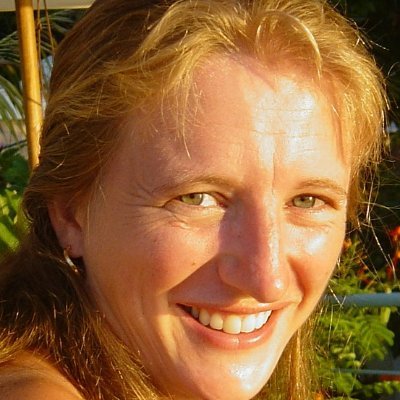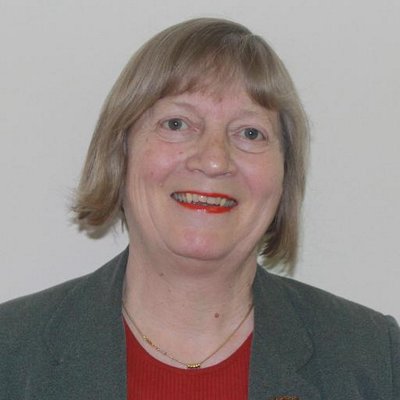strong>Selected by Teacher Developers\' Group [
clear filter]
arrow_back View All Dates
08:45 GMT
Engaging under-represented young people in STEM
Thursday January 9, 2025 08:45 - 09:35 GMT
Speakers MR
Head of Education, British Science Association
All
- Theme Inclusion and Diversity including SEND
- Key Stage / Audience Type ECTs, Global, Industry, Teacher Developers, Selected by Teacher Developers' Group, 0-4, 5 to 7, 7 to 11, 11-14, 14-16, Post-16
08:45 GMT
09:45 GMT
Keynote selected by Teacher Developers' Group: Welcoming diverse pre-service science trainees: transformational practices
Thursday January 9, 2025 09:45 - 10:35 GMT
Speakers 
Leeds Trinity University, Senior Lecturer in Secondary Education Twitter, Leeds Trinity University

Course Lead PGCE Secondary Science, St Mary's University Twickenham
I am a lecturer in secondary and primary science, having recently spent 10 years teaching in secondary.As a chemistry teacher I am particularly interested in the understanding of symbolism in science education. I completed my masters in how students justify organic chemistry mechanisms...
Read More →
Associate Professor Physics Education, University of Birmingham
After spending 15 years teaching physics in secondary schools in the West Midlands area, Dan is now Associate Professor of Physics Education at the University of Birmingham as well as a DPhil research student at the University of Oxford. Dan works on widening access to physics at...
Read More →RD
Lecturer Science Education, Kings College London
09:45 GMT
Enabling change through the assessment of thinking scientifically
Thursday January 9, 2025 09:45 - 10:35 GMT
Speakers AM
Senior Lecturer, Nottingham Trent University
NS
Senior Lecturer in Education, Nottingham Trent University
Dr. Natasha Serret BA (Hons) MA PGCE SFHEAPrimary BA Joint Course LeaderSenior Lecturer in EducationNottingham Trent UniversityNottingham Institute of Education
Thursday January 9, 2025 09:45 - 10:35 GMT
Pope A17
11:15 GMT
How far can we go? Benefits of International collaboration
Thursday January 9, 2025 11:15 - 12:05 GMT
Speakers AM
Associate Professor, University of Greenwich (Education and Centre for Thinking and Learning)

International Science Education Consultant
Physics teacher, HOD, School Leader, Local Authority adviser, Ofsted Inspector, School Improvement Partner, International Inspector and Evaluator, teacher trainer, author and keen user of the new technologies and believer in global learning. Been in schools in these countries for...
Read More →
Chemistry Teacher, National High School of Science and Mathematics, Sofia/ Sofia University St. Kliment Ohridski
Thursday January 9, 2025 11:15 - 12:05 GMT
Pope A1
12:15 GMT
Panel: How does research influence initial teacher education?
Thursday January 9, 2025 12:15 - 13:05 GMT
Speakers 
Professor of Education, Sheffield Hallam University

Primary Science Education Consultant
All
- Theme Professional Journeys
- Key Stage / Audience Type ECTs, Global, Industry, Selected by Teacher Developers' Group, Teacher Developers, ITEs, Advisors/Consultants, 0-4, 5 to 7, 7 to 11, 11-14, 14-16, Post-16
- Twitter feed @theASE
14:15 GMT
Job satisfaction and attrition for physics teachers in the first five years
Thursday January 9, 2025 14:15 - 15:05 GMT
Speakers 
Senior Lecturer (Educational Leadership), University of Chester
I'm a senior lecturer in Educational Leadership at the University of Chester. My main teaching covers Professional Learning and Change Leadership but I also tutor across the MA Educational Leadership programme. My principal research interest is in teacher retention and by focusing...
Read More →IH
Professional Community and Retention Strategic Lead, Institute of Physics
Thursday January 9, 2025 14:15 - 15:05 GMT
Pope A1
15:45 GMT
15:45 GMT
Shaping the Future: Fireside Chat on Post-16 Technical Education Reforms
Thursday January 9, 2025 15:45 - 16:35 GMT
Speakers 
VITTA Group Brand Manager, VITTA Education
As Brand Manager for the VITTA Group, Wendy is closely involved with the group's dynamic portfolio, which is dedicated to empowering science educators, bringing science to life, and consequently, providing support for the scientists of tomorrow.As an established marketeer, Wendy's...
Read More →
VITTA Education is a leading supplier of scientific equipment to educational institutions like schools, colleges, and universities. While the name might still be new, the dedicated team, exceptional products, and unwavering commitment to supporting educators, lab technicians, students...
Read More →
15:45 GMT
Improving the Quality of Primary Science in the East Midlands.
Thursday January 9, 2025 15:45 - 16:35 GMT
Speakers 
PSQM Regional Lead (East Midlands), Primary Science Quality Mark
Science Lead at Wimbledon High Junior School/GDST. PSQM Regional Lead in the East Midlands and PSQM hub leader in SW London. Accredited trainer of the Primary Science Capital Teaching Approach. PSTT Fellow and co-author of the PSTT resources "See Through Science". and "Sketchbook...
Read More →
Primary Teacher and PSTT Mentor, Sandfield Close Primary School
Primary Teacher - I love teaching; I also love being a fellow of the Primary Science Teaching Trust and working for them 1 day a week. Yes, the best of both worlds! Proud to be on the ASE Primary Committee.Padlet link for 2024
ASE Primary Teachmeet 2024 (padlet.com)...
Read More →
Primary Science Consultant
Tracy began teaching in 2001 and, because of her background in research science, became the science lead at her school soon after. As a highly regarded new resource, the original AKSIS Project book featured heavily in the local authority training for science leads and the clever exercises...
Read More →
Senior Lecturer in Education, University of Northampton
Helen is a Senior Lecturer in the Initial Teacher Training team in the Faculty of Health, Education and Society and is currently the Module Leader for the science modules, lectures on the Research Practitioner module and has been the Module Leader in designing and delivering a brand...
Read More →
Professional Development Leader, University of York Centre for Industry Education Collaboration (CIEC)
I love everything to do with primary science, especially the Early Years Foundation Stage. My role at CIEC involves working with teachers to make science enjoyable and worthwhile for both them and their class. I run science and maths courses for Early Years teachers and science courses...
Read More →
Thursday January 9, 2025 15:45 - 16:35 GMT
Coates C22
16:50 GMT
Meet and Greet the ASE Teacher Developers' Committee
Thursday January 9, 2025 16:50 - 17:30 GMT
Speakers 
Professor of Education, Sheffield Hallam University

Primary Science Education Consultant
Thursday January 9, 2025 16:50 - 17:30 GMT
Pope A1
All
- Theme Professional Journeys
- Key Stage / Audience Type Teacher Developers, Selected by Teacher Developers' Group, ITEs, Advisors/Consultants, 0-4, 5 to 7, 7 to 11, 11-14, 14-16, Post-16, FE/Skills
- Twitter feed @theASE


